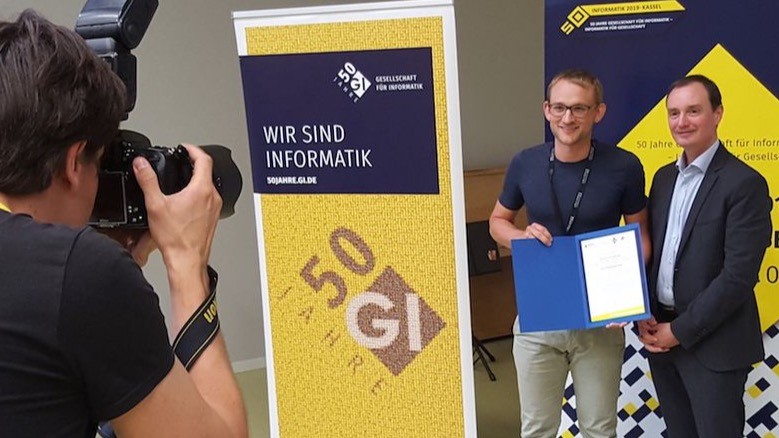Dr Yannic Maus has received the dissertation award of the Swiss Informatics Society (SI), the Australian Computer Society (OCG) and the German Informatics Society (GI), receiving an endowment of €5,000.
Dr Manus, from the University of Freiburg, received the award for the best computer science dissertation of 2018 at an official ceremony at the GI Annual Conference on DATA PROCESSING 2019 on 26 September at the University of Kassel.
GI President, Professor Dr Hannes Federrath, said, “With the GI Dissertation Prize, the computer societies in the German-speaking world are honouring outstanding research work by young scientists who produce important new findings in computer science. With his particularly successful theoretical work, Dr Yannic Maus contributes to a much better understanding of randomised algorithms in distributed systems. This understanding is of particular relevance in a world increasingly characterised by networking,” he said.
In distributed systems, such as the Internet of Things, many computers work in parallel, communicate with each other and solve problems together. In order to save time when solving problems, computers do not follow deterministic algorithms, i.e. they dispense with fixed schedules. Instead, networked computers often use many randomised algorithms to coordinate their actions.
Yannic Maus’s excellent work focuses on the question of why the runtimes of the fastest randomised algorithms in distributed systems are exponentially faster than those of the best known deterministic algorithms.
Yannic Maus has introduced new classes and techniques. His dissertation makes an important contribution to answering the question whether there are also efficient deterministic algorithms for distributed systems.






